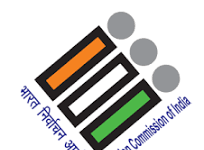President Ram Nath Kovind, in order to achieve our larger goals, improving the quality of institutions of higher learning is of vital importance.
We should be setting benchmarks for the best in the world, he said.
Kovind inaugurated the two-day Conference of Vice-Chancellors of Central Universities and Directors of Institutions of National Importance at Rashtrapati Bhavan on Tuesday.
The President is the Visitor of 161 Central Institutes of Higher Education. Out of 161 institutes, 53 are attending the Conference physically while others are connected virtually.
He was happy to note that this year 35 Indian institutions have been ranked in the QS ranking as against 29 last year.
In the top 300, there are six institutions this year as against four last year. He also noted that the Indian Institute of Science has got a full score of 100 on the ‘research’ parameter and shares this distinction with eight highly reputed institutions of the world, including Princeton, Harvard, MIT, and Caltech.
He congratulated IISc director Dr. Govindan Rangarajan and his team for this achievement, he said.
The President said I am happy to note that ‘Azadi ka Amrit Mahotsav’ commemorating the glorious history of India’s freedom movement finds a place in the opening session.
He said that our institutions of higher learning are central to this, as our young citizens are not only the inheritors of the past, but also the ones who will be leading India into its next golden age.
The institutions of higher education have a major responsibility of transforming the impressionable youth. For this, we need to address their aspirations, as they are future leaders in various spheres of life.
Speaking about quality of education, the President said that to improve it, we should also consider sophisticated and innovative learning approaches. The key to achieving excellence is to harness the transformational benefits of digital technologies for enriching the teaching and learning experience. The digital technologies are expanding the boundaries of education.
When the pandemic threatened to derail teaching and learning, technology ensured continuity. He said that there were difficulties, but it is good to see that educational institutions imparted teaching and conducted assessments, evaluations and research uninterrupted.
We can build on that experience now, and make classroom sessions more interactive, giving students a thorough understanding of the subject, he said.
Addressing the inaugural session, the President said that in order to achieve our larger goals, improving the quality of institutions of higher learning is of vital importance.
We should be setting benchmarks for the best in the world. He was happy to note that this year 35 Indian institutions have been ranked in the QS ranking as against 29 last year.
In the top 300, there are six institutions this year as against four last year. He also noted that the Indian Institute of Science has got a full score of 100 on the ‘research’ parameter and shares this distinction with eight highly reputed institutions of the world, including Princeton, Harvard, MIT, and Caltech. He congratulated IISc director Dr. Govindan Rangarajan and his team for this achievement.
The educators and academic experts should consider this when they prepare the curriculum and other policy initiatives, he said.
Speaking about the agenda item ‘integrating schooling and higher and vocational education’, the President said that the system should educate in a way that not only enhances knowledge, but also provides the skill to live a fulfilling and useful life. School lays the foundation, but this must lead a student to higher or vocational education meeting both aptitude and aspirations.
In different sessions, the Conference will deliberate on various topics such as – Role and responsibilities of Higher Education Institutions in Azadi ka Amrit Mahotsav; international rankings of Higher Education Institutions; collaboration between Academia-Industry and policy-makers; integrating school, higher and vocational education; education and research in emerging and disruptive technologies.








